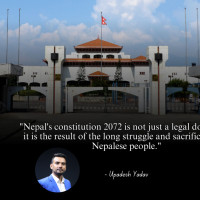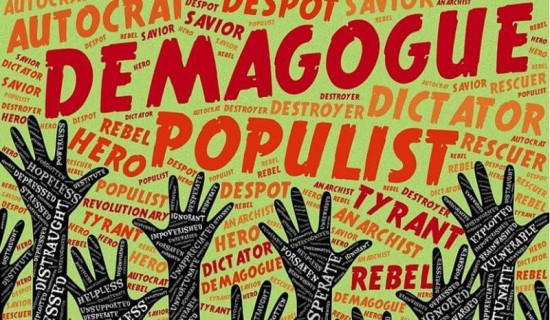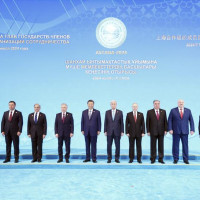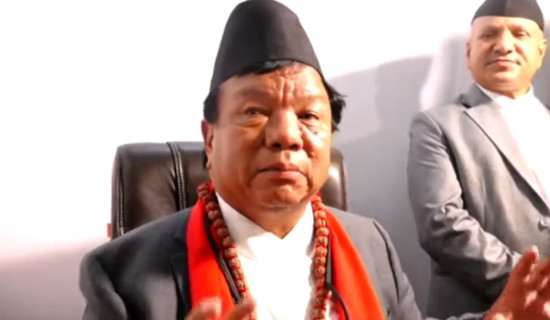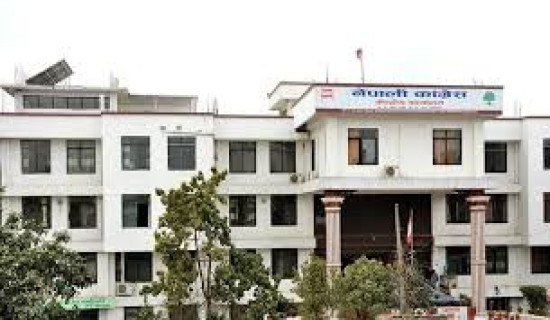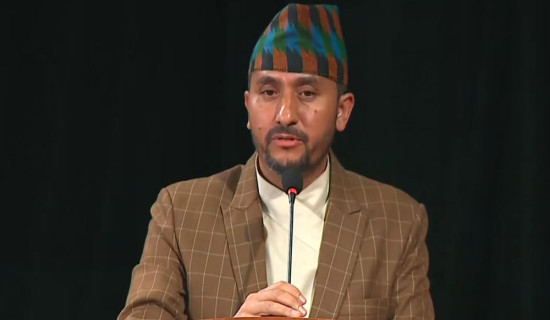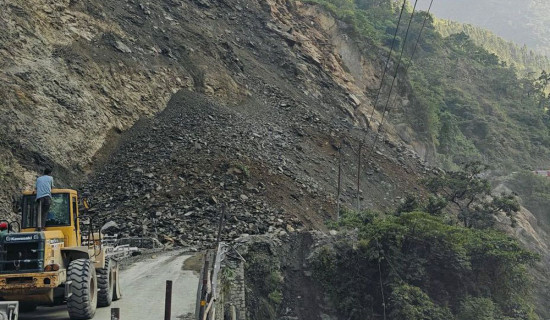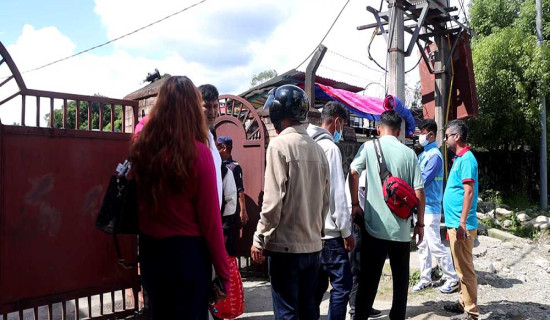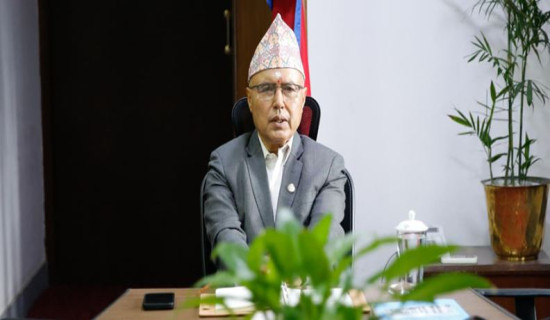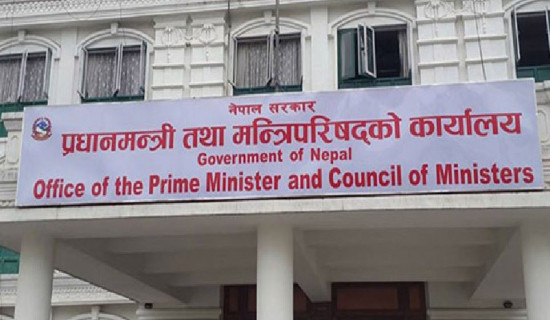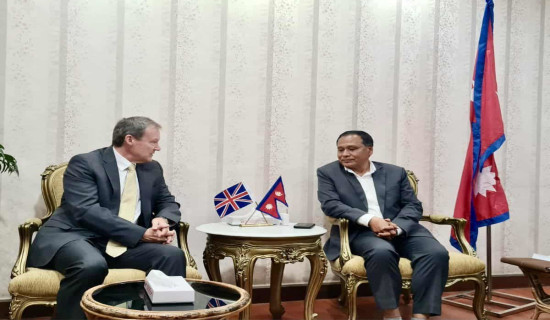- Wednesday, 24 September 2025
National Assembly: backbone of the nation building
Durga Prasad Khanal
Political parties are preparing for the National Assembly elections scheduled for January 25. The ruling and the opposition parties have fielded their candidates for the poll.
Furthermore,
who should be the members of the National Assembly, what the intent of the
constitution is, and what kind of people should constitute National Assembly to
draft laws and promote the spirit of federalism are also being debated in the
political sphere.
International
Exercise
Especially
in UK, the House of Lords continued. Some were born here and remain lifelong
members. The majority of retired judges and senior lawyers remain in this
parliament.
As
provided by the Constitutional Reform Act of 2005, until the formation of the
Supreme Court in 2009, the House of Lords were also the working body of the
Supreme Court. Even though it is the upper house of Parliament, it is necessary
to make the National Assembly meet that standard because of the experience and
influence of the UK, which is capable of doing the work of the Supreme Court,
such as deciding cases and giving justice.
In
the recent period, the upper house is considered the House of Provinces in the
constitution of Ethiopia, which started with We the People of Nation,
Nationalities, and People of Ethiopia, and the right to self-determination,
issued by the Constituent Assembly in 1994. The upper house interprets the
constitution and acts as a constitutional court. In addition to this, the Upper
House also does the work of the Finance Commission, like the distribution of
financial matters. So much so that the constitution has given this house the
right to decide about the right to self-determination.
Upstairs
Practice
Compared
to the dignity and importance of the National Assembly as an upper house and
international practice, the Nepali National Assembly cannot be considered
genuine. Not only is the dignity of the National Assembly not preserved due to
the parties constantly making mistakes, but it seems that the parties are
determined to lower the reputation of the House of Representatives by becoming
a copy.
Colloquially,
the National Assembly is known as the chamber of veterans and experts. Some
people call it an old and experienced house. The main responsibility of this
assembly is to make laws and regulations.
The question of whether members of National Assembly have the necessary
skills to legislate will become an issue of political concern. Nepal has also
adopted a bicameral system consisting of the House of Representatives and
National Assembly. Yet even if we limit ourselves to the practical realities of
2048, there is still plenty of room to question the role of National Assembly.
According
to international practice, National Assembly deputies are not directly elected.
In a way, they do not represent the people. However, after the 2048 election in
our country, the practice of electing members of the National Assembly deputies
began. We have stipulated in Constitution of 2047 to appointment of 10
enlightened persons among the king.
In
2074, in the National Assembly elections, the parties formed a coalition like
in the House of Representatives. This gives impression to ordinary people that
there is no difference between the members of the upper and lower houses. In
2074, there were accusations of extreme politicization even in the three seats
appointed by the President on the recommendation of the Council of Ministers.
If the Council of Ministers makes recommendations based on expertise and
efficiency, there will be no controversy.
In
such a situation, can the National Assembly play an effective legislative role?
In such a permanent structure, is it capable of working for the benefit or
ordinary people in the event of a crisis in the country? We must pay attention
to the political parties moving in this direction.
Constitutional
Provision
The
Constitution of Nepal, 2072, has also only defined the National Assembly
quantitatively rather than making it qualitative.
According
to Article 86(2), in the 59-member National Assembly, 56 members are elected
from the members of the provincial assembly, the chairman or vice chairman in
the case of rural municipalities, and the mayor or deputy mayor in the case of
municipalities. Eight people, including at least three women, one Dalit, and
one disabled person or minority, are selected from each province.
Similarly,
three members are nominated by the president, at least one of whom is a woman.
This makes it easier for parties to recruit only their own workers. Therefore,
it seems that parties cannot form a legal and concrete national assembly
subject to parliamentary approval as prescribed by the constitution.
In
Article 87(1)(b) of the Constitution, there is a mandatory provision that a
member of the National Assembly must be at least 35 years of age to be a member
of the House of Representatives. Its purpose is for the National Assembly to
become a platform where mature, veteran, intelligent, distinguished, popular,
and expert people come together.
According
to Article 111(5) of the Constitution, bills other than money should be passed
by the House of Representatives and sent to the National Assembly. There, it
should be passed within two months. The National Assembly can only give
suggestions on the Finance Bill according to the universally accepted norms.
Although the number of members in the House of Representatives is large, it
seems that the provisions of the National Assembly have been made so that there
may be many errors, mistakes, or immaturity in the House of Representatives. In
this way, there should be a constitutional expectation that the errors made by
the House of Representatives in the process of drafting the law should be
matured by the National Assembly, and the law should be drafted according to
the people's expectations.
In
Article 273(8) of the Constitution of Nepal, it is written, 'In the event of
the dissolution of the House of Representatives, the power exercised by the
Federal Parliament shall be exercised by the National Assembly. That is, the
National Assembly is a permanent assembly with an unbroken tendency and is
never vacant. This proves the special and important justification for the
managerial side of the National Assembly. The constitution envisages the
National Assembly as an integrated component of the federation, state, and
local levels.
Correctional
assembly
Since
the National Assembly has the power to amend the decisions of the House of
Representatives, this assembly is also considered a corrective assembly. The
House of Representatives has its own interests. Constituencies must be
represented. They will necessarily directly participate in the formation and
overthrow of the government. For this reason, some activities of the House of
Representatives that aim to maintain and overthrow power rather than the
interests of the country and is people need to be rectified.
Decisions
made under pressure from those in power may not be beneficial to the in country
and the people. In such a situation, it is this House that has the power to
regulate its decisions. Parties therefore need to ensure that they field
candidates capable of sustaining this status.
To
do this, parties need to pay attention to the upcoming National Assembly
elections. The House of Representatives is going through the clutches of
unconstitutional dissolution and restoration and is being tormented by
permanent disruption. If the National Assembly remains in its shadow, it will
not take long before it loses public faith.
The writer is a law student at Nepal Law Campus. Email; dpkhanal907@gmail.com




